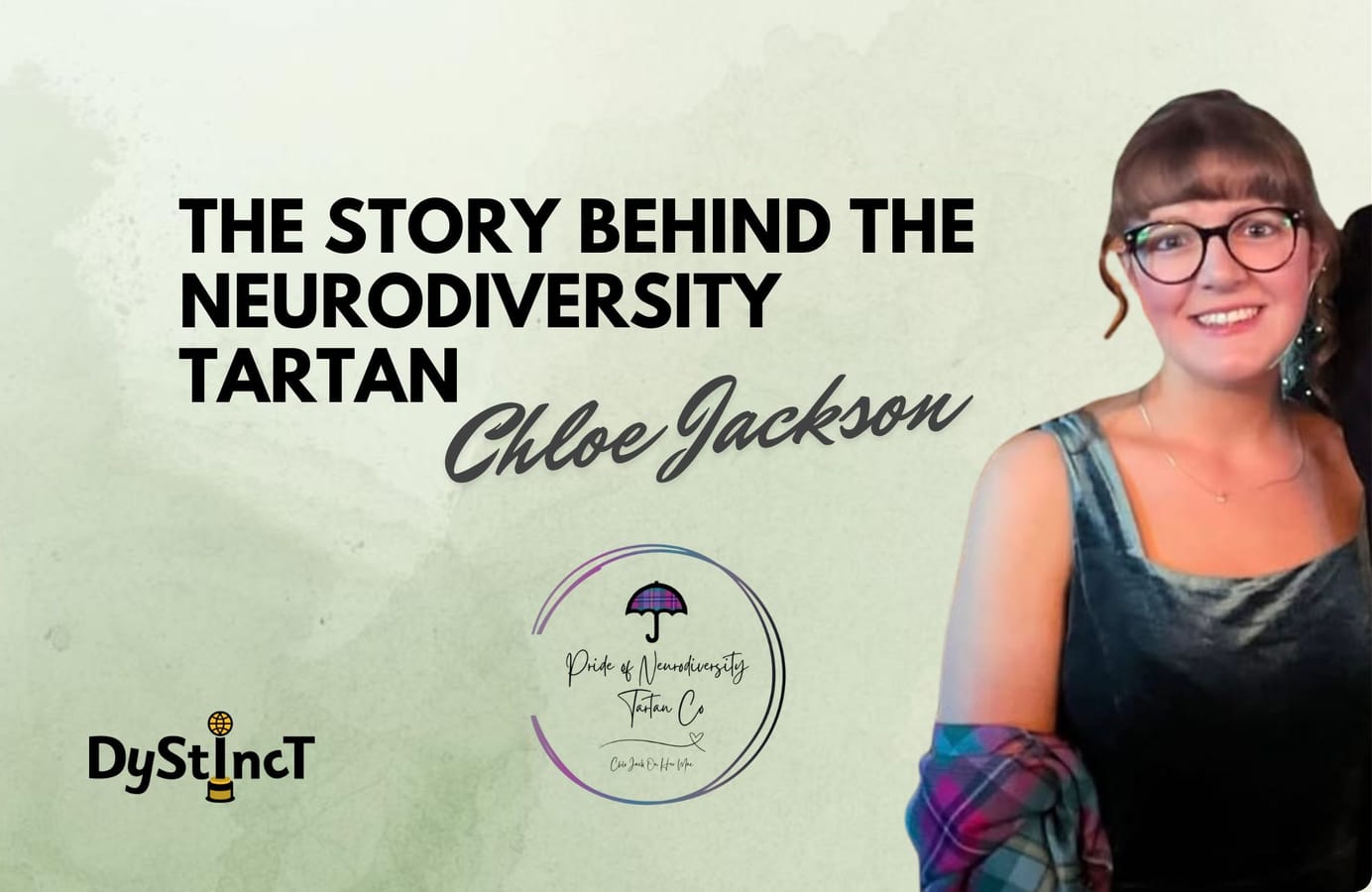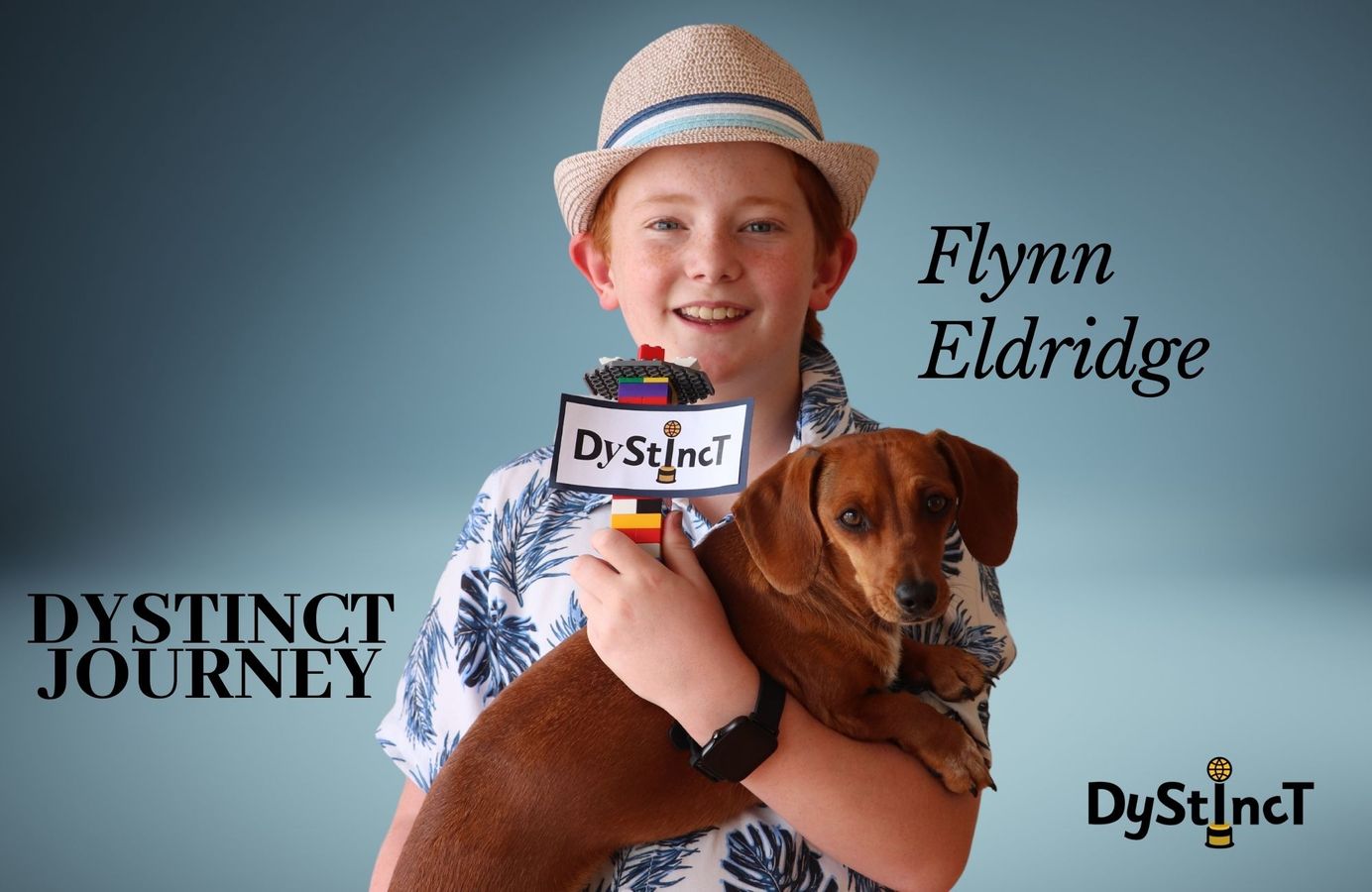
Issue 13: The Dystinct Journey of Flynn Eldridge
The story of how 10-year-old Flynn Eldridge has found his "bright" and "quirky" back after a rough start to school. His parents, Carrie and Anthony Eldridge reveal how they homeschool their neurodiverse children and support them in pursuing their passions.
~ Interviewed by Zahra Nawaz
Flynn joined the Dystinct team in January 2022 when his mum responded to a callout that we posted on the Dystinct social media pages for children interested in journalism to join our team. I was sent a cute video by Flynn, with David Attenborough-style commentary, featuring an Echidna and Flynn's sibling Ava Eldridge. It was shot at his property in rural New South Wales (NSW), Australia. It was evident young Flynn had a talent for being behind the camera. Flynn's parents, Carrie and Anthony Eldridge, often found entertaining and informative recordings on devices where he had documented an event or an investigation.
"I feel super happy and excited when I am being a journalist. Some kids may think that news is boring, but as they grow up, they find out it's more important than it looks. I have started to ask Dad more questions about what is going on in the news," shares Flynn. Flynn's first assignment was to interview Karen Willson, the founder of Simply Homeschool, an Australian-based support network for homeschooling families. "I wasn't feeling that good before the interview. After the interview, I felt great! I succeeded in doing it and finishing it. I think it went brilliantly," shares Flynn.
Karen Willson was chosen for the first interview because the family was using the Simply Homeschool program to homeschool Flynn and his siblings. Being familiar with the program made it easier for Flynn to brainstorm questions with his parents. Carrie shares that Flynn had only seen a picture of Karen before and was understandably unsettled on the day of his interview. "He asked to read his questions over and over again and was squirming in the chair and breaking his Lego microphone. When Karen joined him online, he struggled to make eye contact with her." However, it was like a switch went on when Flynn pressed the record button, and he left his family pleasantly surprised as he smoothly slid into the role of a journalist. "He was engaging, making lots of eye contact, and had no trouble with reading the questions. He was incredibly ecstatic at the end that he had done it," shares Carrie.
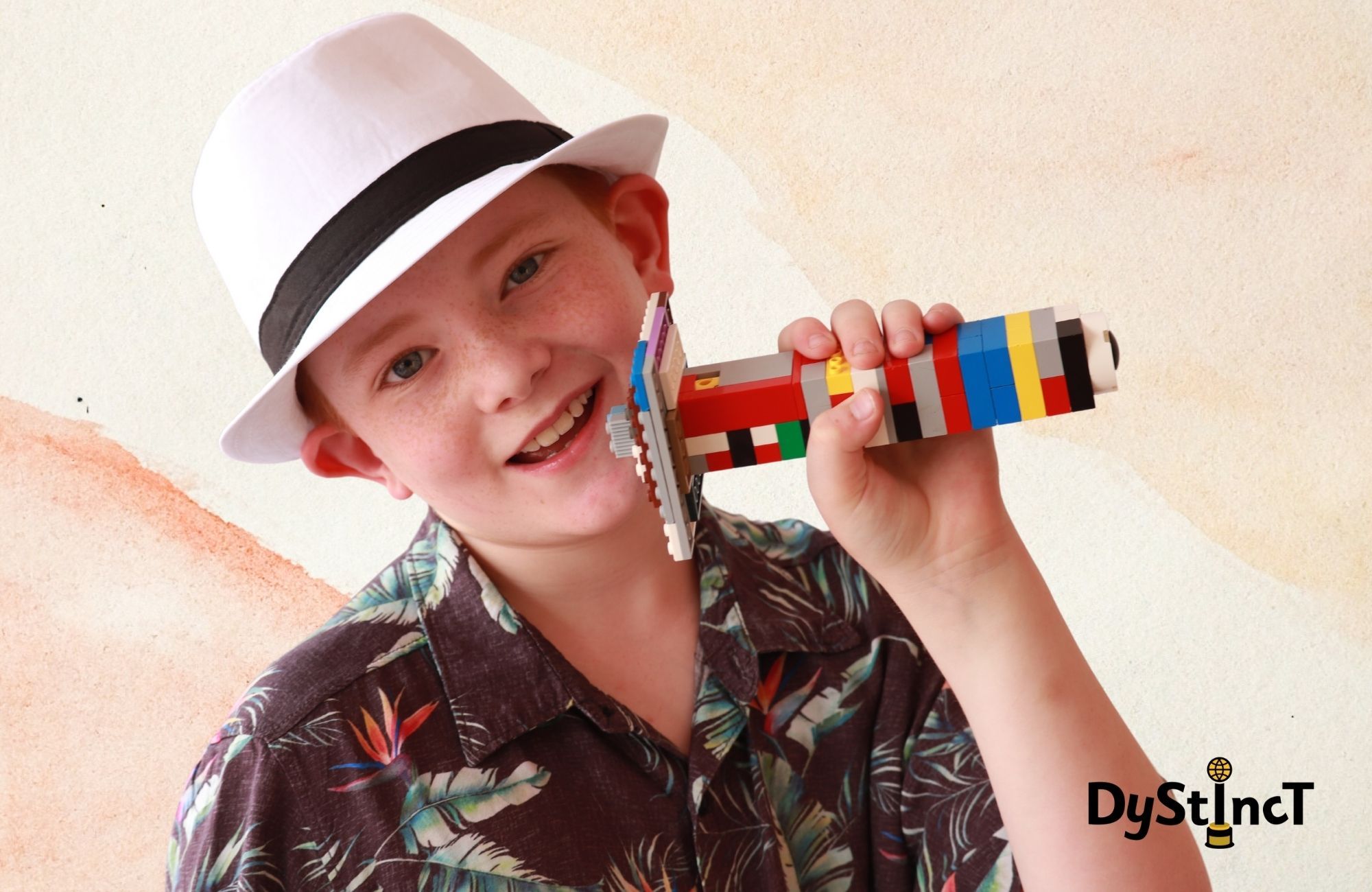
It was like a switch went on when Flynn pressed the record button.
Flynn is the eldest of four siblings in the Eldridge household. Carrie shares that they felt their first warning bells go off at primary school orientation when Flynn was only four years old. Their "fun-loving" child came home sad and solemn. When asked how the day went, Flynn replied, "I don't want to go back." Flynn turned five and started school but still had trouble settling in. "The first couple of weeks at primary school were torture! He didn't want us to leave him, we would have to pry him off us, and there were tears all around. He would come home tired, grumpy, and frustrated. The biggest sign, though, was when he wouldn't sit at his Lego mat. Our resilient, innovative, 5-year-old Lego-maker wouldn't even pick up his Lego without us holding his hand. We were going to bed in tears, wondering, 'What was going on? Why was our son's personality crumbling in front of our eyes?'"
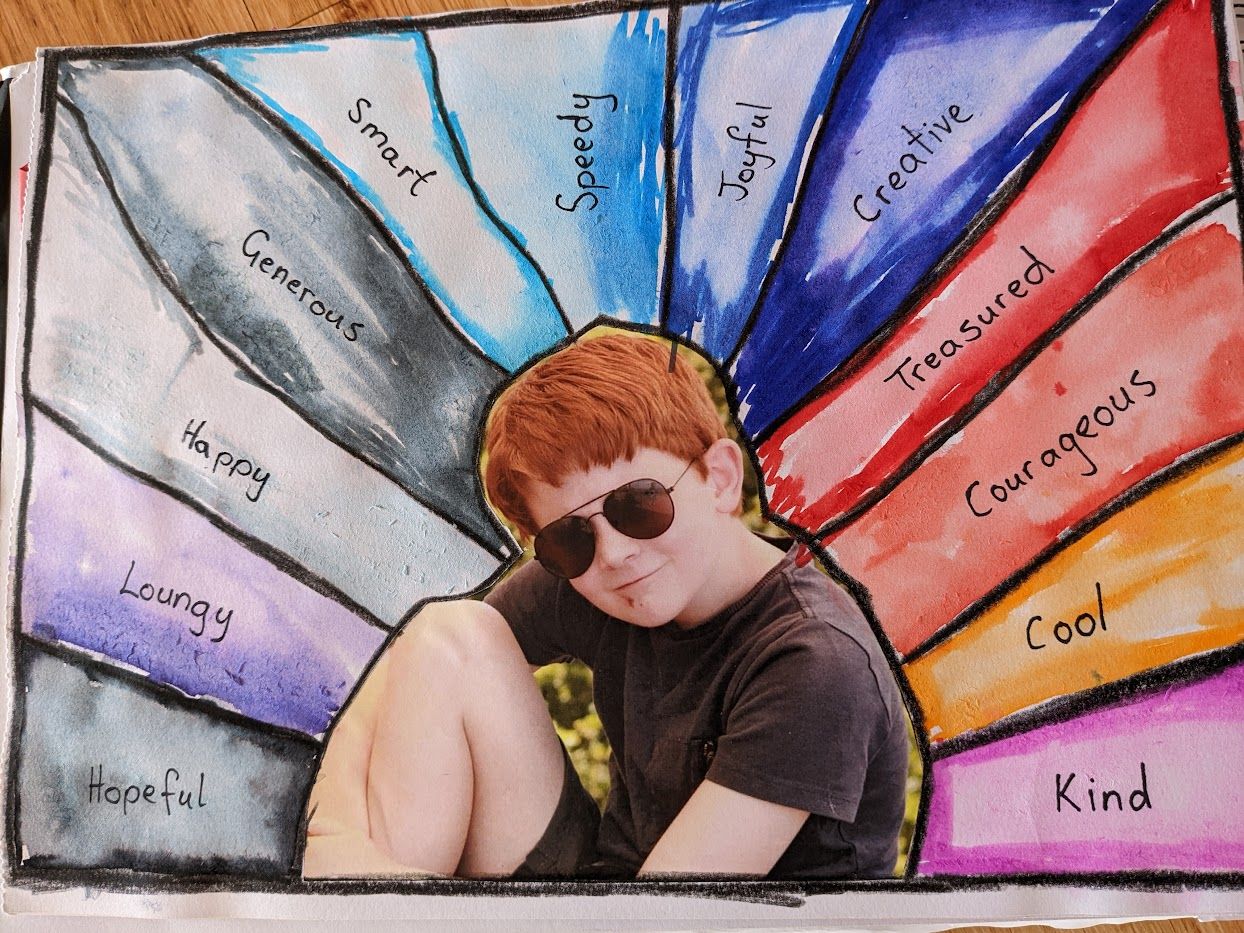
Carrie shares that Flynn struggled with so much at school. Due to his sequencing issues, they would often not realise what was going on until weeks had passed and he was starting to get the order clear in his head. He had issues with claustrophobia in the classroom, the school rules, changes to events or classrooms, being given too many instructions at once, and expectations such as sitting down on the seat. Not until later Carrie and Anthony realised that Flynn was being bullied in the playground, probably because he was not reading the social expectations. At the age of 5-6 years old, Flynn began to see school as a prison. He felt like the fencing around his school created an invisible shield over the school that he could not get out of. Carries recalls that one day, Flynn proudly showed Anthony and her a hole that he had dug under the fence as an escape. "He felt so much happier knowing there was an exit. However, they closed that part of the school off. There were many days when just getting out of the door to get to school was hard. Even though we lived so close to the school, we were often late."
At the age of 5-6 years old, Flynn began to see school as a prison.
As the worried parents tried to figure out how they could support their son, they happened to have a conversation with some special friends of theirs that helped them finally decipher what was going on for Flynn. Carrie shares, "We were downloading our worries to special friends when they opened up and shared a bit about their experience with their children. They saw similarities between one of their children and Flynn. We will never be able to repay them for their love, openness, and honesty for sharing that day. Their years of struggles, learning, and advice allowed us to check out dyslexia straight away and take the right path." Anthony and Carrie jumped into action straight away. They had Flynn screened for dyslexia and dysgraphia and had a mental health plan put in place to ease his anxiety around attending school.
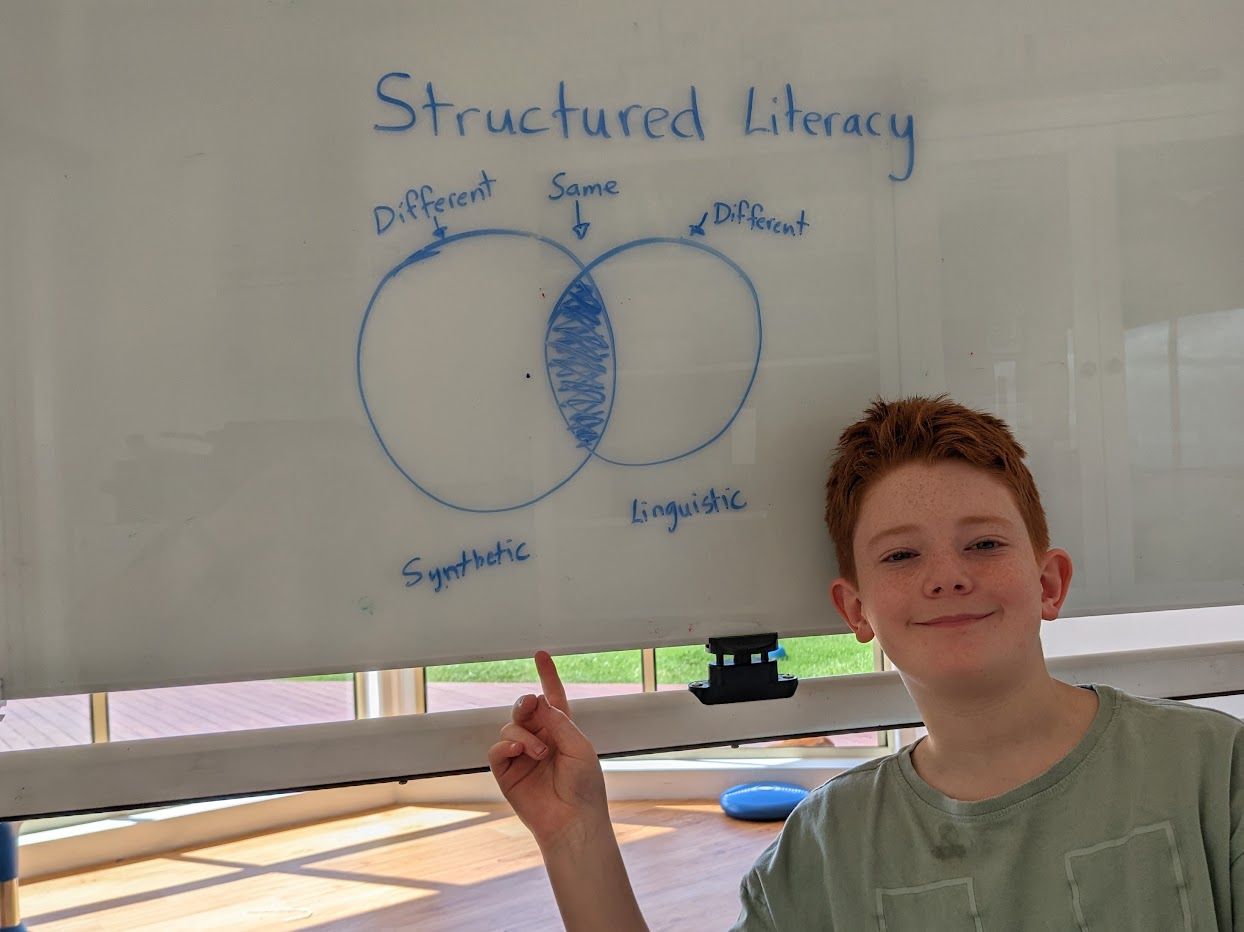
Flynn put his foot down when schools resumed following the pandemic lockdowns and refused to return to school. "We told all our children that they needed to try school again for two weeks, but if homeschooling was what they really wanted to do - we would give it a go. Flynn had already made up his mind and told his teachers he was leaving in two weeks. Even seeing his best mate again did not keep Flynn at school. Our other two school-aged children decided to stay at school at that time. Flynn did try to go back to a new school at a later date when we moved, but it didn't last," shares Carrie.
Even seeing his best mate again did not keep Flynn at school.
Carrie's professional background was immersed in organisational psychology principles, developing teams "to be the best they could be," and Anthony's background was IT, bookkeeping and transport. Neither of Flynn's parents had school teaching experience, but they were prepared to do whatever it took to ensure Flynn got an education that suited his unique needs. They purchased the All About Reading and All About Spelling, reading and spelling intervention programs, which they delivered at home, and provided remediation through Multisensory Structured Literacy. When Carrie saw the progress Flynn was finally making with intervention, she knew she had to get trained herself, considering how neurodiversity ran in the family and the cost of intervention for each of their four children. Carrie trained at the Institute for Multisensory Language Education (IMSLE), run by the Australian Dyslexia Association.
After seeing how much Flynn was struggling even with home-schooling, Anthony and Carrie decided to see if he would benefit from medication, as they suspected ADHD was also playing a part. A paediatrician diagnosed Flynn with ADHD and started him on medications. However, the medication left his anxious parents with an irate and violent child for a few months until they made the decision to stop the medication.
Presently, with a clear understanding of Flynn's struggles, Carrie and Anthony look back and can clearly see all the early signs that Flynn exhibited all along. It is a detailed list:
- amazing oral vocabulary
- charisma
- incredible balance, e.g., early to crawl, walk, and ride a bike
- creativity
- love of animals
- high energy
- a high 'fake' radar - when someone is pretending to be something they are not
- incredible negotiating skills
- the need to pull apart or put together mechanical objects
- dislike of colouring-in and not being able to colour in the lines
- clumsy fine motor skills
- finding it hard to learn colours
- not knowing left from right
- anxiety
- not sleeping when something can't be shut off in the mind
- forgetting where things were put or where to put things away
- trouble with the sequencing of events
- spontaneity, e.g., crossing the road to see someone who is driving by without looking for cars
This post is for paying subscribers only
SubscribeAlready have an account? Log in


